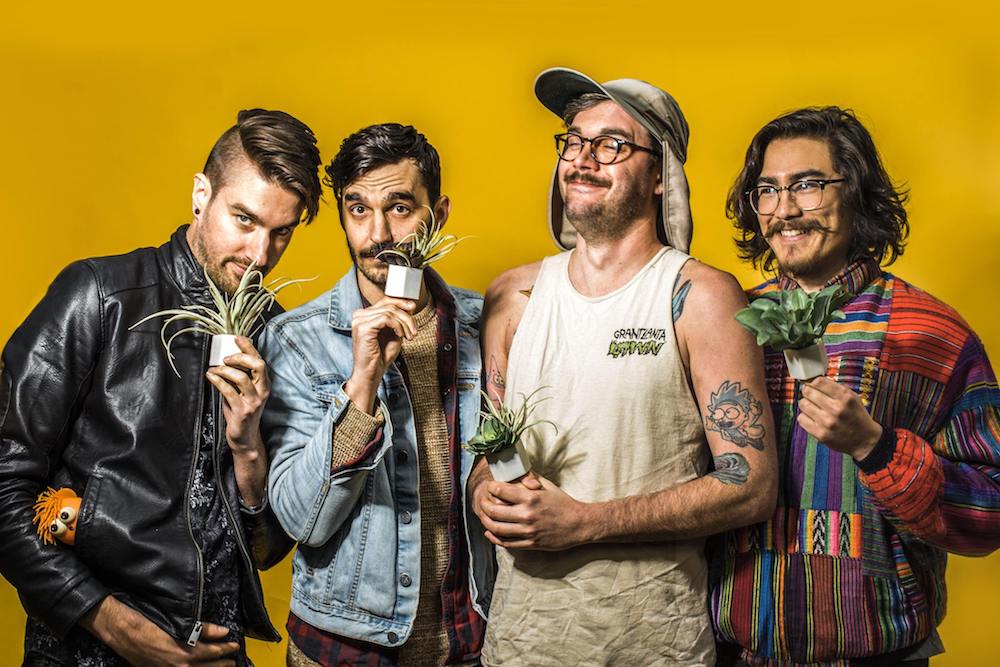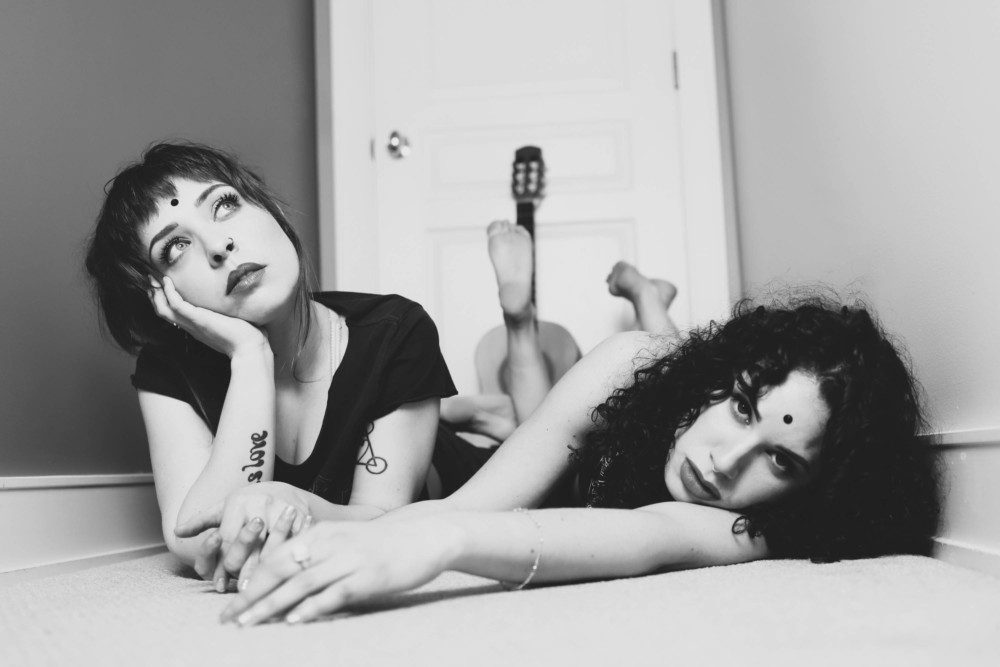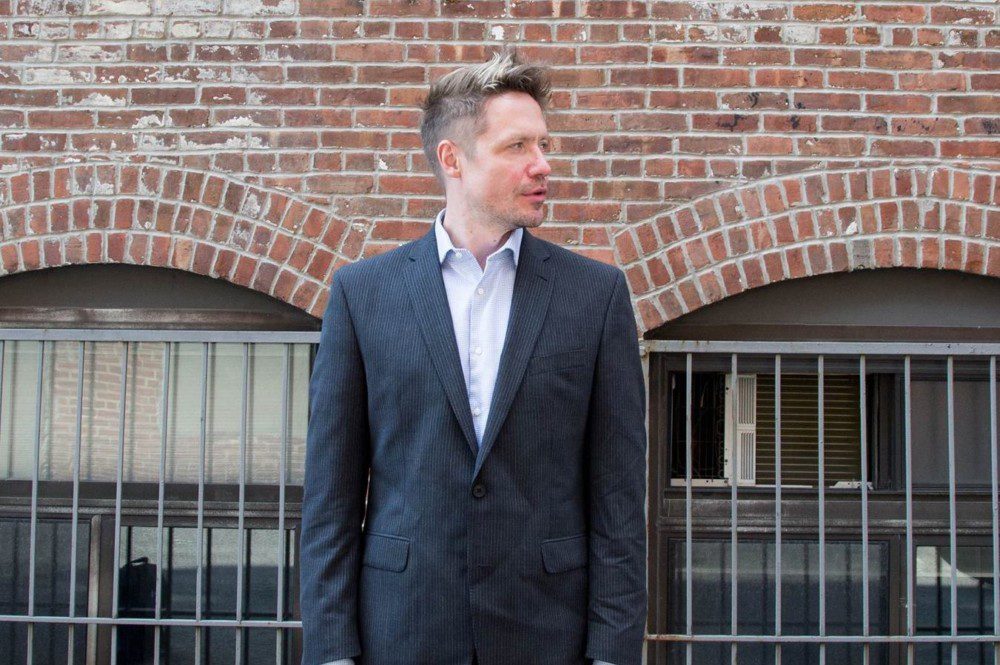PLAYING ATLANTA: Challenger Deep Unleash Frantic Energy on Self-Titled Debut

There’s something about the quiet and stillness of winter that drives me to seek out new music to break through the silence. Lucky for me, I stumbled across a Spotify playlist with a long list of new releases from Atlanta bands a few weeks ago. I spent a happy afternoon shuffling through a wide variety of music written and released mostly by people I knew and loved – and have written about, like I The Victor and Starbenders. A few songs in, I found myself nodding along with an intricate, expansive instrumental track called “Immersive” by four-piece instrumental rock group, Challenger Deep.
I’ll be honest: I haven’t listened to many instrumental bands in my life, other than the occasional instrumental Allman Brothers Band song, but there was something so emotive about this group’s playing that immediately drew me in. It’s high energy, bordering on frantic at certain moments, but there’s something welcoming about all that enthusiasm.
I immediately reached out to the quartet, made up of James LaPierre and Jordan Fredrickson on guitars, bassist Jason Murray, and Grant Wallace on drums. After exchanging a few messages, I got to sit down and chat with Jordan about their self-titled debut and all things Challenger Deep.
AF: How did you guys get your start?
JF: James and I met in a bar and sparked a conversation about music and found that we both play guitar and sort of naturally decided to jam. About a year or so later, we thought it’d be a good idea to play some shows and recruited Grant. Not long after that, Grant introduced us to Jason, and we were happy with the sonic art enough to play The Pink Room, my friend’s basement venue. I couldn’t have asked for a better first show. We all love challenging ourselves to make the music as interesting to listen to as it is technically challenging to play. That shared passion really makes our dynamic work.
AF: Were you involved in music growing up, or was it something you grew into?
JF: I’ve been playing guitar for 21 years, but I didn’t really start taking it seriously until I was about 17, so I guess a little of both.
AF: When did you realize it was less of a hobby and more of a career?
JF: This is the first band I’ve been in where I feel like we’re all committed and talented enough to realize our creative dreams while appealing to a wide array of people.
AF: We’re living in a day where instrumental bands are far less common. What made you decide to start an instrumental group? Was it a group decision, or more a natural, spontaneous creation?
JF: In the beginning, we had some conversations about adding vocals, but we couldn’t really imagine any style that would enhance the music enough without being a little too much. I’ve been in instrumental bands as a guitarist for the past 6 or 7 years and I really like being able to express the feelings a song might invoke without having to verbalize anything. We actually have two lyrics: “Whoo!” and “Ru-Fi-O!”
AF: You recently released your self-titled debut album. Where did you record it? What was the recording process like?
JF: This experience was so great! We took one bongo part from our session at Standard Electric Recorders, but besides that, Corey Bautista recorded most everything at his studio, Corey Bautista Audio. He’s a pretty brilliant guy when it comes to laying down a record and he’s a wizard at smoke machine operation too! For the album, I loved the perfectionism. When I hear the finished tracks and think about all the work we all put into it, it really makes me smile. Everyone really brought something special to the table, along with their passion, and I think that really comes through in the music on the record. The process was so much fun because I love being around musical people and things. It’s hours of tuning drums and replacing guitar strings and really searching for that one sound in your head that you really want to lay down, and of course, forcing your fingers to do really weird and sometimes unnatural things. I wouldn’t have changed a thing. My favorite part was recording the auxiliary percussion though. Just being silly and shaking tambourines and shells for a while was great.
AF: What’s your creative process like? How has it changed in the year that you guys have been together?
JF: Well, James and I played exclusively in his room for a while before finding the right additions to the band. He had a lot of the stuff down, but we added some parts here and there and redid a lot of the arrangements. After the additions of Grant and Jason, the music really started to take shape. I thought it sounded complete and great before, but after adding their instruments and ideas to the mix, there’s no other way I would want to hear it. Basically, the songs have been through the wringer four times over. We each break them down and ask ourselves and each other how every particular part serves the song, and if it doesn’t, we find where it fits or throw it out.
AF: Which bands or artists inspire you the most? How do you draw from that inspiration and use it to create something that’s unique?
JF: We draw from bands like Protest the Hero, Chon, Clever Girl, Saves Us from The Archon, the list goes on. I think I’m inspired by bands that have a certain playfulness to their music. When I draw from influences, it’s more about the feeling than it is about sounding or playing a certain [part] like them. I’m inspired by music that makes me feel like making music that will hopefully inspire someone else to make music that makes someone happy, or help make someone’s day a little bit better. Damn, that sounds cheesy.
AF: How do you communicate feelings and stories through instrumental music? Do you think it’s in the notes you play, or the way you play them?
JF: I tend to think about the way that the melody and harmony lines are working together and working up to in any given part. Proper execution is key to conveying the melody and harmony, but for me, it’s more about the bigger picture. Where did the song come from? What was felt there? Where is it going? Where do you want the listener to end up?
AF: What’s your favorite part of the Atlanta music scene?
JF: I like the variety. It’s got a little bit of everything and no matter what you like I can probably tell you where to find it on a Saturday night.
AF: You’ve been together just over a year and are already seeing some serious growth. What’s next for Challenger Deep?
JF: We’ve been writing new (super secret) songs and finding creative ways to display them. We recently recorded a lyric video with onomatopoeias for the instrument sounds. It’s pretty hilarious and it was so fun. You can look for more of that weirdness.
AF: Last question: best place to hang out and listen to live music in Atlanta?
JF: I like EAV a lot, 529 and the EARL always holds some familiar faces and crazy talent. I love seeing people play music there and I’m just thinking, “I am so lucky to see this, and it’s right down the street.”
Keep up with Challenger Deep on Facebook, and stream their self-titled debut on Spotify.




